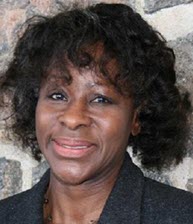Abstract
Excerpted From: Shelby D. Green, Adaptive Rezoning for Social Equity, Affordability and Resilience, 52 Seton Hall Law Review 1325 (2022) (107 Footnotes) (Full Document)
 There is much inequity in our society--in economic opportunity, in health care, in education, in the enjoyment of the amenities of social life. The most glaring manifestation of this inequity is in access to housing. “Housing is an essential predicate for” human flourishing, economic and social power, establishing a place in the community, fostering social relations, nurturing children, encouraging norms, self-realization, and self-fulfillment. Yet, disparities continue because of the legacies of legal discrimination from racist laws and policies and also because current facially-neutral zoning laws and land use policies continue to operate perniciously in the background.
There is much inequity in our society--in economic opportunity, in health care, in education, in the enjoyment of the amenities of social life. The most glaring manifestation of this inequity is in access to housing. “Housing is an essential predicate for” human flourishing, economic and social power, establishing a place in the community, fostering social relations, nurturing children, encouraging norms, self-realization, and self-fulfillment. Yet, disparities continue because of the legacies of legal discrimination from racist laws and policies and also because current facially-neutral zoning laws and land use policies continue to operate perniciously in the background.
Shortages of housing have been persistent, particularly for low-income households. When economic conditions deteriorate, so do the resources of low-income families and other property owners. The 2008 Housing Crisis led to millions of foreclosures, and these losses fell disproportionately on poorer households--communities declined, property values of neighboring properties suffered, and all were demoralized by the woeful auction signs in front yards.
In this Article, I will show how the legacies of the institutional barriers to housing still persist to deprive many of the predicates for economic thriving and personal flourishing and how existing zoning philosophy cannot be justified by the need to protect health and safety. Righting the inequities of the past and of the present will require dismantling some of the institutions, apparently legitimate and well-meaning, but operating devilishly to create and perpetuate hardship and exclusion. This will require laying bare the institutions to reveal their ignoble essence. We need a radical overhaul of the historic zoning regime from one that excludes to one that is prescriptive of inclusion. We must imagine and construct a new world, one that is open and sustainable for living and against the looming impacts of climate change. We can do this by what I call adaptive rezoning. In laying out the contours of this concept, I will offer comment on the various initiatives around the country for inclusive and sustainable cities (including those that pertain to the impacts of climate change) and offer my own ideas for a plan for social and economic justice.
[. . .]
An equitable, affordable, and climate-cognizant community requires rethinking what we do on the ground and in our policies. The shaping and reshaping of the built world is not a new adventure, but something that has occurred both organically and deliberately since the beginning of time, at first by bare want, then by creative vision, and now it must change out of necessity. Affordability and resiliency need not be viewed antithetically, but instead as twins serving a common mission of the survival of community. Creating physical zones to manage physical threats serves to achieve an urban land ethic that makes for resilient communities in all respects.
As our society faces the arduous task of reconciling grand principles of equality with the reality of social and economic exclusion based on race and social status, we are enjoined to rectify systemic racism formalized by past policymakers. Narrow and half-hearted overtures, those that have been bantered about for so long, will not work anymore. Instead, competing conditions-- inequity, deprivation, and climate change--portend widespread upheaval, social, economic, and ecological. And they are not abstract risks, but existential. Averting them requires a bold commitment of resources and policy--creativity and perseverance.
Susan Taxer Research Professor of Law, Elisabeth Haub School of Law White Plains, N.Y.


